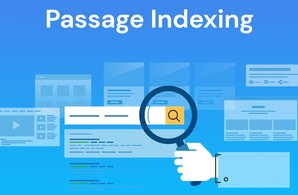Search Engine Optimization Tips
- Home
- Knowledge Sharing
- Search Engine Optimization Tips
How much do you really know about search engine optimization? As the Internet continues to evolve, it's only natural that the way people search for the information they need changes too. Even if you've had an online presence for years, it makes sense to take a second look at your SEO efforts and how you optimize your pages. Here are a few tips that will get you started.
Write for Your Audience
This has always been true to some extent. Today, it's more important than at any time in the past. As search engines become more discriminating in how results are displayed, it's no longer enough to use the right keyword phrases. Your content has to contain information that your readers will find useful.
It's been said that the days of writing for search engines are over. Now more than ever, you must write for your readers. That will mean making sure the content following your title speaks directly to the question or topic. Anything less provides a reason for search engines to pass over your pages and rank those with more informational content higher.
Publish Something New Regularly
Connecting with your readers via new content is a must. You must settle on a schedule for releasing new material and keep it constant. Daily may not be right for your audience, but weekly is likely to be a good choice. Remember that it's fine to publish an additional post now and then, but always release your regular weekly post on the same day. The consistency keeps readers coming back and helps to improve the number of hits your pages receive.
Update Keywords Continually
Keyword research is a process and not an event. The fact that certain phrases were popular last month does not mean they are still fine this month. Your job is to make use of online tools that help you understand which keyword phrases are currently attracting a lot of attention. Use those resources to assemble a list of keywords that fit naturally into each of your posts. Repeat the process when it's time to publish your next blog post.
Resist the Urge to Over-Optimize
There was a time when specialists recommended using high-ranking keywords as much as possible. That sometimes led to short pieces having as much as a 10% keyword optimization. Reading the post was somewhat difficult, but all those keywords certainly made sure the page would be on the first page or search engine results.
Today, that activity is more likely to drive your pages to the bottom of search engine results. The somewhat delicate designation of over-optimization is more commonly known as keyword stuffing. Avoid it at all costs and only use the keyword when it makes sense to do so.
Keep URLs Short and Sweet
You may use a generator to come up with the URLs for your pages. That's fine, but don't settle for what the generator provides. Just as you want your content to be pointed and on target, the URL must be the same. Longer does not necessarily mean better.
Before you publish, look at the URL. Could be it shorter and still convey the topic properly? If so, go with the shortened version.
Test Your Website's Speed
Did you know that website speed is also a factor that search engines consider? You can design pages that look wonderful once the finish loading, but how long will that take? A better approach is to design pages that may have a more simplistic design but load faster. Couple that with solid content and relevant images, and you have a better chance of high placement.
Stay on Top of Algorithm Changes
Forget about the days when the major search engines made algorithm changes once a year. There are still a couple of big ones during each 12-month period, but there are also less apparent changes constantly happening. You must stay in the loop about those changes. Even what seems to be nothing more than a minor tweak can affect your traffic.
Remember you don't have to manage your SEO alone. Work with an expert to evaluate your pages and develop ideas on how to improve them. Together, it's possible to increase traffic, hold the attention of your readers, and reach a wider audience than ever.






